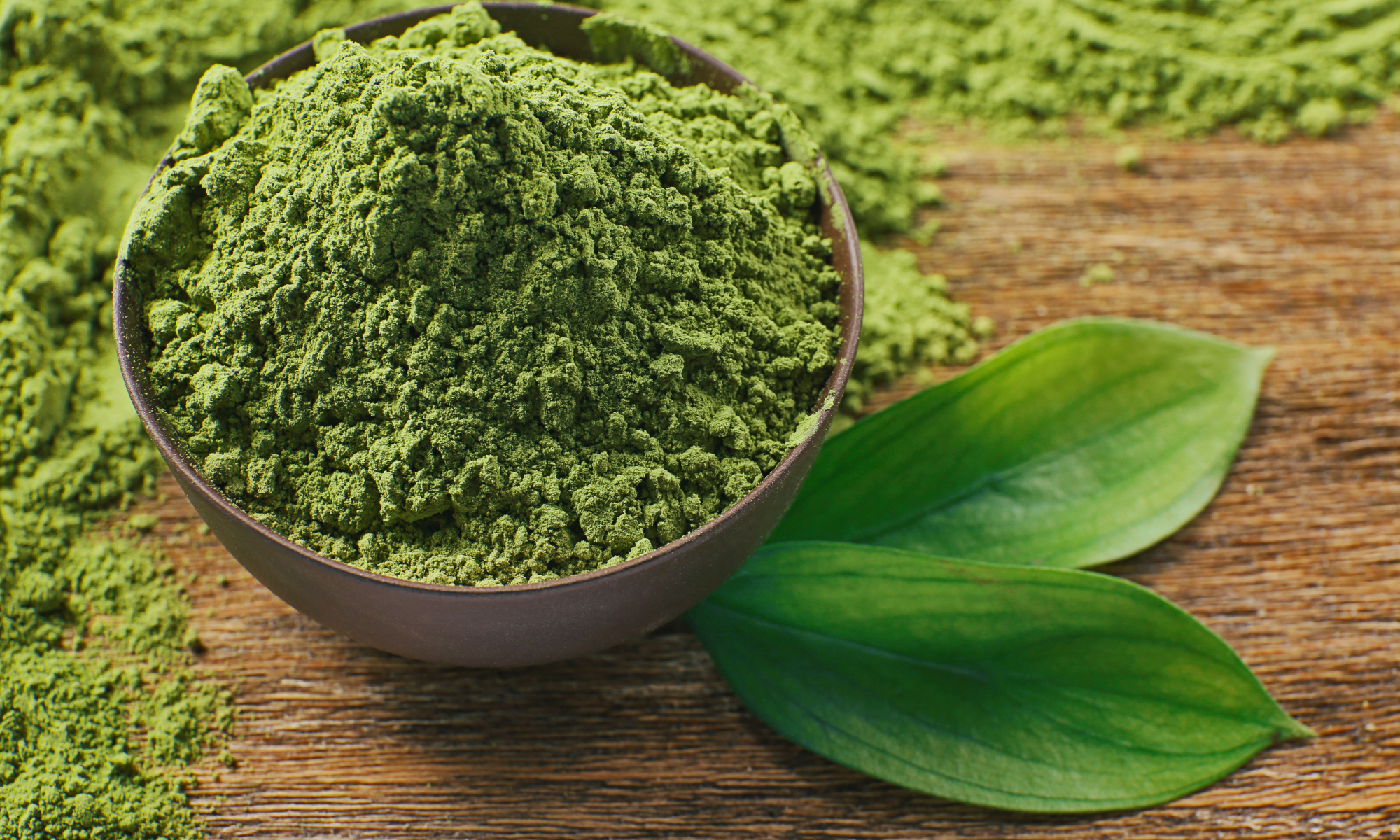Are Greens Supplements Worth It? The Truth About Their Benefits

KEY TAKEAWAYS
- Greens supplements provide a concentrated source of nutrients but should not replace whole vegetables, which offer fiber and hydration.
- High-quality greens powders list transparent ingredients, avoid proprietary blends, and undergo third-party testing for purity and safety.
- Some greens supplements contain probiotics and digestive enzymes, which may support gut health and improve nutrient absorption.
- Checking for artificial sweeteners, preservatives, and fillers like maltodextrin helps ensure a cleaner, more effective formula.
- The best way to take a greens supplement is with a meal containing healthy fats to enhance the absorption of fat-soluble vitamins.

Greens supplements are marketed as an easy way to increase nutrient intake, but do they actually deliver real health benefits? With so many products available, it can be difficult to determine whether they are worth adding to a daily routine. Some formulas promise improved digestion, increased energy, and better overall wellness, but their effectiveness depends on ingredient quality, formulation, and how they fit into an individual’s diet. While these supplements may help fill nutritional gaps, they should not be seen as a replacement for whole foods. Understanding their potential benefits, risks, and the factors that determine a high-quality product can help in making an informed decision.
What Are Greens Supplements?

Greens supplements are concentrated blends of vegetables, fruits, herbs, and other plant-based ingredients designed to support overall health. They typically come in powder or capsule form and contain a mix of dried and powdered greens such as kale, spinach, wheatgrass, chlorella, and spirulina. Many formulas also include probiotics, digestive enzymes, and adaptogenic herbs to enhance absorption and provide additional health benefits.
These supplements aim to help individuals increase their intake of essential nutrients, especially those who struggle to consume enough leafy greens and vegetables daily. Some products are marketed for energy, detoxification, gut health, and immune function, making them a popular choice for people seeking to support their wellness goals conveniently. However, their effectiveness depends on the quality of ingredients, how they are processed, and how they fit into an individual’s overall diet and lifestyle.
Do Greens Supplements Work? Benefits of Greens Supplements

Greens supplements provide a concentrated source of essential nutrients that may help fill dietary gaps, especially for those who struggle to eat enough vegetables. Many formulas contain vitamins, minerals, antioxidants, and plant-based compounds that support immune function, digestion, and overall health. Ingredients such as spirulina, chlorella, and wheatgrass are rich in antioxidants that help protect cells from oxidative stress. At the same time, added probiotics and digestive enzymes may promote gut balance and improve nutrient absorption. Some green powders also include adaptogenic herbs and B vitamins, which may help reduce fatigue and support mental clarity. Although greens supplements can be a convenient way to increase nutrient intake, they should complement a balanced diet rather than replace whole foods. Their effectiveness depends on ingredient quality, bioavailability, and how they fit into an individual’s nutrition plan.
Greens supplements contain concentrated nutrients from plant-based ingredients that may support overall health in several ways. While they cannot replace whole foods, they provide a convenient source of vitamins, minerals, antioxidants, and plant compounds that may help with energy levels, digestion, immune function, and cellular health. Their effectiveness depends on ingredient quality, formulation, and how well they complement an individual’s diet.
Support for Nutrient Gaps
Many people struggle to eat the recommended daily servings of vegetables, leading to deficiencies in key nutrients. A high-quality greens supplement provides a concentrated source of vitamins and minerals such as vitamins A, C, K, folate, and magnesium. These nutrients are essential in immune function, bone strength, cardiovascular health, and cellular repair. Some formulas also contain plant-based sources of iron, which may support individuals with low iron intake. While whole foods remain the best way to meet nutritional needs, a greens supplement can help bridge the gap for those who do not consistently consume various vegetables.
Antioxidant and Anti-Inflammatory Properties
Many green powders contain antioxidants that help protect cells from oxidative stress, which can contribute to aging and chronic disease. Ingredients such as spirulina, chlorella, wheatgrass, and green tea extract contain polyphenols, carotenoids, and flavonoids that may help neutralize free radicals. Some formulas also include turmeric and ginger, which have been studied for their potential anti-inflammatory properties. Reducing oxidative stress and inflammation may support heart health, cognitive function, and overall well-being. While no supplement can prevent disease, adding a green powder with a diverse antioxidant profile may help reduce exposure to harmful compounds contributing to cellular damage.
Gut Health and Digestion
Some green supplements include probiotics, prebiotics, and digestive enzymes to support gut health. Probiotics introduce beneficial bacteria that contribute to a balanced gut microbiome, while prebiotic fibers such as inulin or acacia fiber fuel those bacteria. Digestive enzymes like bromelain and papain may help break down proteins and other macronutrients, potentially improving nutrient absorption. Ingredients such as wheatgrass and spirulina contain natural compounds that may promote a balanced digestive system. While green powders may support digestion, individuals with sensitive stomachs should check for potential irritants like artificial sweeteners or high-fiber ingredients that could cause bloating.
Alkalizing Effects on the Body
Some green supplements claim to help balance the body’s pH by reducing acidity. The body naturally regulates pH levels, but confident dietary choices may contribute to an acidic environment. Leafy greens, algae, and other plant-based ingredients in greens powders contain minerals like potassium and magnesium, which may support a more alkaline state. While research on the long-term impact of dietary pH balance is limited, consuming more alkalizing foods such as greens may contribute to overall well-being by supporting mineral balance, hydration, and proper cell function.
Energy and Mental Clarity
Certain greens supplements contain plant-based compounds that may support sustained energy and cognitive function. Ingredients such as matcha, ginseng, and ashwagandha are often included for their potential adaptogenic properties, which may help the body manage stress and maintain steady energy levels. B vitamins play a role in converting food into usable energy, while compounds like chlorophyll from leafy greens may help oxygenate the blood. Unlike caffeine-based energy boosters, greens supplements that include adaptogens and micronutrients may provide a more balanced, long-lasting energy source without the jittery effects of stimulants. Some people report improved mental clarity and focus after incorporating a greens powder into their daily routine, though results may vary based on individual nutrient needs.
Green supplements may provide nutritional benefits when used in a well-balanced diet. Their ability to support energy, digestion, and immune function depends on ingredient quality, absorption, and dietary habits. While they can help fill nutritional gaps, whole vegetables, and fruits remain the most effective way to obtain essential nutrients and fiber.
Potential Drawbacks and Risks
Greens supplements can offer a concentrated source of plant-based nutrients, but they also come with certain drawbacks and risks. Factors such as ingredient quality, sourcing, and formulation can influence their safety and effectiveness. Understanding these potential concerns can help determine whether a greens supplement is the right choice for an individual’s dietary needs.
-
Nutrient Overload and Imbalances: Many greens powders contain high amounts of vitamins and minerals, which may contribute to excessive intake when combined with a nutrient-rich diet or additional supplements. Fat-soluble vitamins such as A, D, E, and K accumulate in body fat and can become toxic in large amounts. High doses of iodine from seaweed-based ingredients like kelp may affect thyroid function, while too much iron can cause digestive discomfort or interfere with mineral absorption. Checking ingredient labels and considering total daily nutrient intake can help prevent imbalances.
-
Heavy Metal Contamination: Certain ingredients, particularly algae like spirulina and chlorella, may absorb heavy metals from their growing environment. Poorly sourced greens supplements may contain traces of lead, arsenic, cadmium, or mercury, which can pose long-term health risks if consumed regularly. Choosing a product that undergoes third-party testing for heavy metals and contaminants can help ensure safety.
-
Digestive Issues and Sensitivities: Some greens powders contain high amounts of fiber, probiotics, or plant compounds that may cause bloating, gas, or stomach discomfort, especially for those with sensitive digestion. Ingredients such as wheatgrass and spirulina may have natural detoxifying properties, which can lead to temporary digestive upset. Some products also contain artificial sweeteners or sugar alcohols that may irritate the gut. Starting with a smaller serving and gradually increasing intake may help minimize these effects.
-
Artificial Additives and Fillers: Some lower-quality greens supplements include artificial flavors, preservatives, or unnecessary fillers that may reduce their overall health benefits. Added sugars, gums, and synthetic ingredients can affect digestion and may not align with a clean, whole-food-based approach to nutrition. Looking for organic, non-GMO, and additive-free options can help avoid unwanted ingredients.
-
Lack of Fiber Compared to Whole Foods: While greens supplements provide concentrated nutrients, they lack the natural fiber found in whole vegetables. Fiber plays a key role in digestion, gut health, and blood sugar regulation. Relying on a greens powder instead of eating fresh vegetables may result in missing out on important benefits such as improved satiety and healthy digestion.
-
Potential Allergens and Interactions: Some greens powders contain common allergens such as soy, wheatgrass (gluten risk), or shellfish-derived ingredients. Individuals with food sensitivities or allergies should carefully review ingredient labels. Additionally, certain greens supplements contain herbs or compounds that may interact with medications, including blood thinners and thyroid medications. Consulting a healthcare professional before starting a new supplement can help prevent unwanted interactions.
While greens supplements can be a convenient way to boost nutrient intake, their quality and formulation vary widely. Selecting a product with clean ingredients, third-party testing, and transparent labeling can help minimize risks. Whole foods should remain the foundation of a healthy diet, with supplements serving as an addition rather than a replacement.
How to Choose the Best Greens Supplement
A high-quality greens supplement should have transparent labeling, third-party testing, and a well-balanced blend of nutrient-dense ingredients. It is important to avoid proprietary blends, as they do not disclose the exact amounts of individual ingredients, making it difficult to assess their effectiveness. Look for products that contain whole-food-based greens, such as spirulina, chlorella, kale, and wheatgrass, which provide essential vitamins, minerals, and antioxidants.
Certifications like USDA Organic or NSF verification help confirm that the supplement is free from pesticides, heavy metals, and harmful additives. Bioavailability is another key factor, as certain nutrients require additional compounds for optimal absorption. Some products include digestive enzymes or black pepper extract to improve nutrient uptake, particularly for vitamins and antioxidants.
Checking for artificial sweeteners, preservatives, or fillers like maltodextrin can help ensure a cleaner, more effective formula. Cost per serving also affects value, and some brands offer subscription discounts for long-term use. Since taste affects consistency, trying a sample size before purchasing a full container may be beneficial. Prioritizing ingredient quality, purity, and nutrient bioavailability will help ensure the greens supplement provides real health benefits and complements a balanced diet.
How to Take a Greens Supplement

Greens supplements can be easily incorporated into a daily routine, but using them correctly ensures maximum benefits. Serving size, timing, and preparation methods all affect how well the body absorbs the nutrients.
Best Time to Take a Greens Supplement
Many people take green supplements in the morning to start the day with a nutrient boost. Consuming them on an empty stomach may enhance absorption, especially for ingredients like chlorophyll and probiotics. Others prefer taking green powders before meals to support digestion, while some mix them into post-workout shakes for added vitamins and minerals. The best time depends on individual preferences and how the body responds to different ingredients.
How to Mix Greens Powders
The most common method involves mixing green powders with water, but blending them into smoothies can improve taste and texture. Adding a banana, berries, or nut milk can help mask the earthy flavor while providing extra nutrients. Some people also stir green powders into yogurt, oatmeal, or juice for variety. Avoid mixing them with hot liquids, as heat may degrade specific vitamins and enzymes.
Pairing Greens Supplements with Other Foods
Taking greens supplements alongside healthy fats, such as avocado or nuts, may improve the absorption of fat-soluble vitamins like A, D, E, and K. Pairing them with a protein meal can also support balanced nutrition. Some formulations contain adaptogens or caffeine, which may affect energy levels, so checking ingredient labels can help determine the best time to take them.
Proper use of a greens supplement can enhance its benefits, making it a convenient way to support overall nutrition. Finding a routine that fits personal preferences and dietary habits will help ensure consistent use and optimal results.
For those seeking a more personalized approach to digestive health and overall wellness, Roots Nutrition offers expert-curated supplement packages tailored to your unique needs. Founded by Dr. Romeo Brooks, a pioneer in holistic health, Roots Nutrition combines decades of expertise in natural healing with scientifically-backed solutions. Discover how our natural supplements can support optimal digestion, detoxification, and vitality—empowering you to achieve your health goals.
Common Questions About Greens Supplements
Do greens supplements work for energy and mental clarity?
Many greens supplements contain B vitamins, adaptogenic herbs, and plant-based compounds that may help support steady energy levels and cognitive function. Ingredients like matcha, ashwagandha, and ginseng are often included for their potential to reduce fatigue and enhance focus. Unlike stimulants such as caffeine, greens powders with adaptogens may offer more balanced, long-lasting energy without the risk of crashes.
Are greens and reds supplements worth it compared to a regular greens supplement?
Greens and reds supplements combine nutrient-dense greens with antioxidant-rich fruits, offering a broader spectrum of vitamins, polyphenols, and phytonutrients. While a standard greens powder focuses on alkalizing greens and detoxification, adding reds may provide additional benefits for heart health, skin vitality, and immune support. Choosing between the two depends on personal health goals and dietary needs.
How can I ensure a greens supplement is free from contaminants?
Third-party testing is the best way to confirm a greens supplement is free from heavy metals, pesticides, and harmful additives. Certifications such as NSF, USP, or USDA Organic indicate that the product meets strict safety and purity standards. Checking for transparent labeling and ingredient sourcing can also help ensure the supplement is of high quality.
Do I need a greens supplement if I already eat a healthy diet?
A greens supplement can help fill nutrient gaps, but it is not necessary if a diet already includes a variety of vegetables, fruits, and whole foods. Fresh produce provides fiber, hydration, and synergistic compounds that cannot be fully replaced by a powder. However, for individuals with busy lifestyles or limited access to fresh produce, a greens supplement may offer added convenience and support.
What is the best way to take a greens supplement for maximum absorption?
Mixing a greens supplement with water or blending it into a smoothie can improve taste and ease of consumption. Pairing it with a meal containing healthy fats, such as avocado or nuts, may help improve the absorption of fat-soluble vitamins like A, D, E, and K. Some formulas also include digestive enzymes or black pepper extract to enhance nutrient bioavailability.





